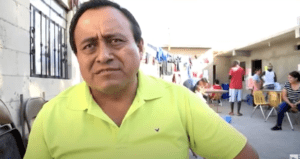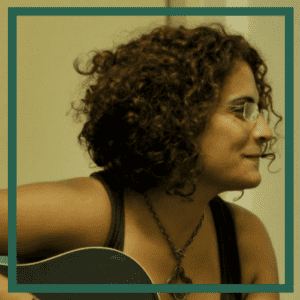Author’s note: In 2018, in one of the peaks of the humanitarian migrant crisis, as thousands of Central Americans arrived in Tijuana, I delved into Obadiah. (You might want to take a quick read through one of the smallest books of the Bible.) The prophet speaks strong judgment, which is also an invitation to repentance and care. I hope the reflections on Obadiah and migration, as well as the example of one of my heroes of faith, Mexican Pastor José Antonio Altamirano, founder of a migrant shelter in Tijuana, will move us to love and care.
 We do not know much about Obadiah, besides that his name means “God’s servant” and that he preached to the nation of Edom.
We do not know much about Obadiah, besides that his name means “God’s servant” and that he preached to the nation of Edom.
The Edomites, descendants of Esau, were Israel’s historical enemies. When Israel was fleeing from Egypt, Edom closed its gates. Israel begged for mercy, as they were running away from violence, brutality, and extermination in Egypt, but Edom refused to let them in.
Obadiah was a keen observer of Edom’s idolatry of safety. The Edomites were prideful of their wisdom and striving, and blind to their own poverty and misery. The Edomites are not representative of the evil and force of the Empire (be it Egypt, Babylon, Rome or the U.S.), but they stand for the cruelty of indifference, the ignorance of history, and lack of compassion. “You stood there and watched; you were as bad as they were” (1:11 MSG).
God brings judgment to Edom. And, of course, judgment today is neither a popular nor an accepted topic. But Obadiah is all about judgment. This is because God sees and cares. That is what Scripture tells us. God cares for his people.
In Obadiah’s time, his people were vulnerable, and fleeing from Babylonian brutality and violence. God is not indifferent to history, nor to the global political scene. He cared then, and he cares now. He especially cares for the most vulnerable and for those displaced by state violence, hunger, and despair.
God also cared for Edom, because he is not the God of only one nation but the God of all. Obadiah denounces Edom for the way they rejected refugees, blocking their entrance and sending them back home to death and violence. They are invited to repent.
God sees, cares, and very personally knows. We see it in Jesus, in the way he incarnated, he lived and died. He stands by those who flee, who seek refuge, who are needing help. God cares so much for the refugees that he incarnated into a refugee family.
In the end of the book, God invites us into the expectation and anticipation of his kingdom—one that does not look anything like the force and power of the empires. The last verse in Obadiah reads: “The remnant of the saved in Mount Zion will go into the mountains of Esau, and rule justly and fairly, a rule that honors God’s kingdom.” We are still invited to live in anticipation of the kingdom of God, which also implies repentance.
God calls us into owning our stories of ransacking and violence. For Mexicans like me, this might mean taking a deep look at our indifference toward the rural poor and our native people, as if we were any different from them. For people in Tijuana, this prophecy matters, because we are a city of migrants, and we are no different from our brothers and sisters from Central America or Haiti who have been displaced because of violence and are seeking a better future. For U.S. Americans, this prophecy matters deeply, because many of the reasons for migration from Central America and other parts of the world is a response to U.S. intervention, exploitation, and support of dictatorial regimes that have been legitimated with supposed Christian beliefs.
This prophecy matters because it unmasks our hypocrisy and our rejection of the poor and migrant out of fear and pride.
Edom resisted the refugees fleeing into their territory, joked about the misfortunes of Israel, and thought to themselves that it was the result of Israel’s own problems. Sometimes, we also turn our eyes blind to the plights of the migrants, we are prejudiced, and we consider our safety more important than somebody else’s.
If we do not care for the migrant and refugees in our cities and gates, for the children separated from their families, or the strangers in our midst, God does care. God brings judgment. We are invited to care—to do what we can.
 Pastor José Antonio Altamirano, who passed away less than a year ago, lived out God’s hospitality and generosity in ways that have reflected the gospel with such power that many leaders from wealthy churches and nations were humbled and encouraged to care. The church he pastored became a shelter in 2016 as thousands of Haitians arrived in Tijuana. In 2019, the shelter became one of the few that was willing to host Central Americans who were also fleeing.
Pastor José Antonio Altamirano, who passed away less than a year ago, lived out God’s hospitality and generosity in ways that have reflected the gospel with such power that many leaders from wealthy churches and nations were humbled and encouraged to care. The church he pastored became a shelter in 2016 as thousands of Haitians arrived in Tijuana. In 2019, the shelter became one of the few that was willing to host Central Americans who were also fleeing.
Thousands of people have been cared for, and the lives of many of us who have been connected to this work of God have been transformed. For Pastor José Antonio, for his church, and for me, there would be no point to say we are Christians if we are not willing to open our hearts and doors for those in need. The church cared because God cares.
Obadiah poses the question in front of us: How are we caring? Who are we trusting? How are we living? It is not about wealth, resources, or status, but about love, generosity, and solidarity. There is so much creativity in love.
 Alejandra Ortiz lives in Tijuana, México, with her husband, Abdiel, and their two daughters. They have deep-knit connections with family and friends on both sides of the Tijuana/San Diego border. Alejandra works for the International Fellowship for Evangelical Students (IFES) in a project that fosters dialogue between the Sciences and the Faith. She participates in a church that serves as a shelter for migrants and refugees in Tijuana.
Alejandra Ortiz lives in Tijuana, México, with her husband, Abdiel, and their two daughters. They have deep-knit connections with family and friends on both sides of the Tijuana/San Diego border. Alejandra works for the International Fellowship for Evangelical Students (IFES) in a project that fosters dialogue between the Sciences and the Faith. She participates in a church that serves as a shelter for migrants and refugees in Tijuana.


